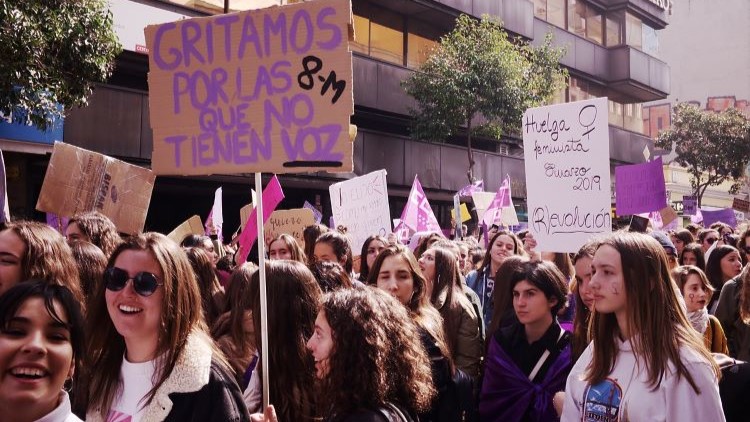The Diplomat
Spain is the country in Europe with the highest feminist awareness and the most critical of gender inequality, reveals an Ipsos report published this week on the occasion of a new celebration of March 8, International Women’s Day.
The study was conducted by Ipsos, in collaboration with King’s College London and The Global Institute for Women’s Leadership, between December 22 and January 6 using more than 22. 500 online surveys in 32 countries around the world: nine EU countries (Spain, Portugal, France, Italy, Germany, the Netherlands, Belgium, Sweden, Poland and Hungary), the United Kingdom, Turkey, several countries in the Americas (USA, Canada, Mexico, Colombia, Brazil, Peru, Argentina and Chile), a group of countries in Asia (China, India, Thailand, Malaysia, Singapore, Korea, Japan and Indonesia), Saudi Arabia, the United Arab Emirates, Australia and South Africa.
According to the survey, the majority of adults (53%) in Spain declare themselves feminist (61% among women and 45% among men), a percentage that has increased nine points compared to 44% five years ago. In addition, those who say they are not feminists have dropped to 36%. In the 32 countries in the report as a whole, the percentage of people who declare themselves to be feminists is 41%.
These data place Spain clearly above the global average and as the most feminist country with respect to the rest of the European countries analyzed, followed by Portugal (46%) and France (45%). Globally, Spain ranks fifth, below countries that in some cases are difficult to associate with feminism, such as India (63%), Saudi Arabia (63%, 27 points higher than just a year ago), United Arab Emirates (also 63%) and Thailand (55%).
However, the study indicates that this progress is provoking a new reaction: half of the population, in line with the world average, believes that the achievements towards women’s equality are leading to discrimination against men and even distrusts that life today for young men is better than for women of the same generation. In the case of Spain, 53% of people surveyed think that men are being discriminated against in the push for women’s equality. Broken down by gender, this is the opinion of 61% of men and 44% of women in Spain. This figure also places Spain at the head of Europe in terms of this perception, followed far behind, with a ten-point difference, by the United Kingdom.
On the other hand, there is a consensus that women will not achieve equality without the help of men. Six out of ten respondents think this way globally and 61% in Spain. In addition, the majority of global respondents (53%) believe that gender equality will be beneficial for both men and women. In Spain, the percentage rises to 58%, at the same level as Sweden and only behind Portugal (67%).
The study also reveals that it is necessary to continue fighting against discrimination, as an average of 27% globally still admit to having observed sexist comments from friends or family members. Spain, with a percentage of 38%, is the second European country where these incidents occur the most, behind Portugal (41%). On the other hand, 15% of the Spanish population admits to having witnessed a case of discrimination at work. Spain is the European country, together with Italy, in this respect. In addition, 10% say they have witnessed a case of sexual harassment in the last year.
The European country most critical of inequality
In addition, 70% of the Spanish population (68% globally) believes that there is inequality in terms of social, political and economic rights, a high percentage but one that has fallen by seven points in the last six years. Women are the most critical in this regard (77% compared to 64% of men). In addition, Spain is the European country most critical of this situation, followed closely by France and the United Kingdom with only one point less. The report also indicates that issues related to gender equality are already part of daily conversations with family and friends in Spain (35%), when in 2018 it was only 18%.
“Spanish society proves to continue to be at the European forefront in the recognition of inequality between men and women,” said Paco Camas, director of Public Opinion Research at Ipsos in Spain. “Although slowly and with ups and downs, progress is being made: the majority consider that the lives of young women today are better than those of their mothers when they were young,” he continued. “The majority of Spaniards already identify themselves as feminists (54%) and only a minority rejects it (36%),” but “this minority is the majority among men,” she warned. “Many of them continue to confuse equality with redress: two out of three (61%) consider that the drive for gender equality entails discrimination against men,” he lamented.







